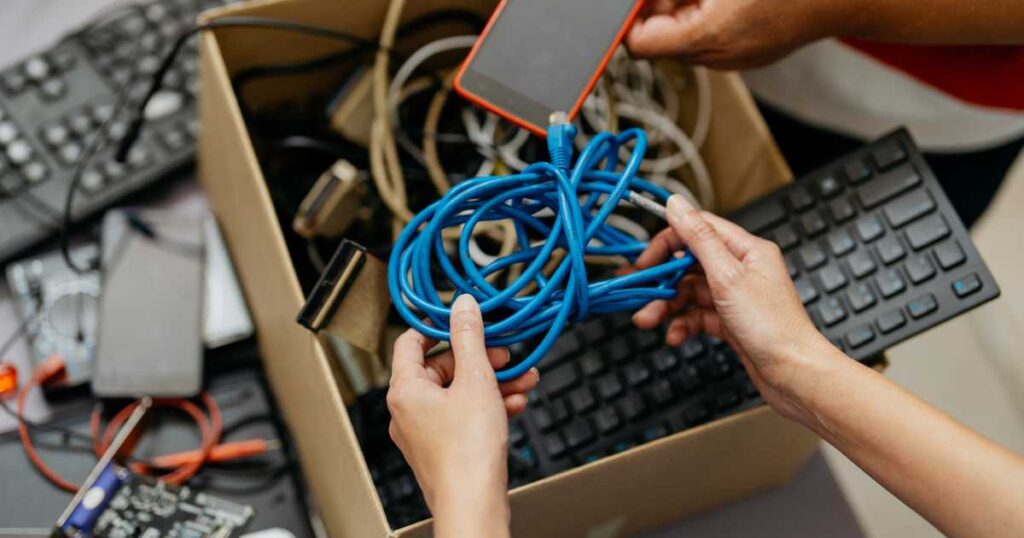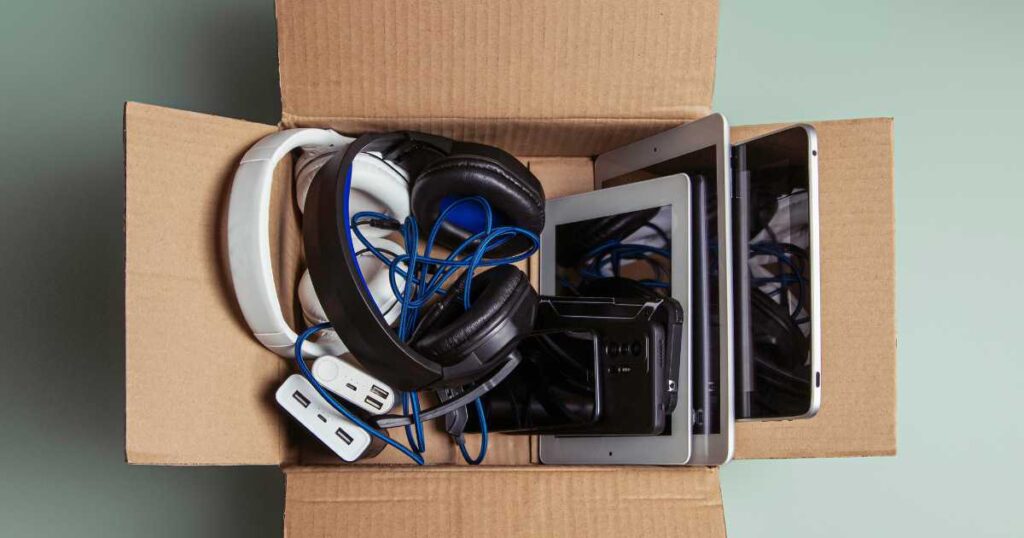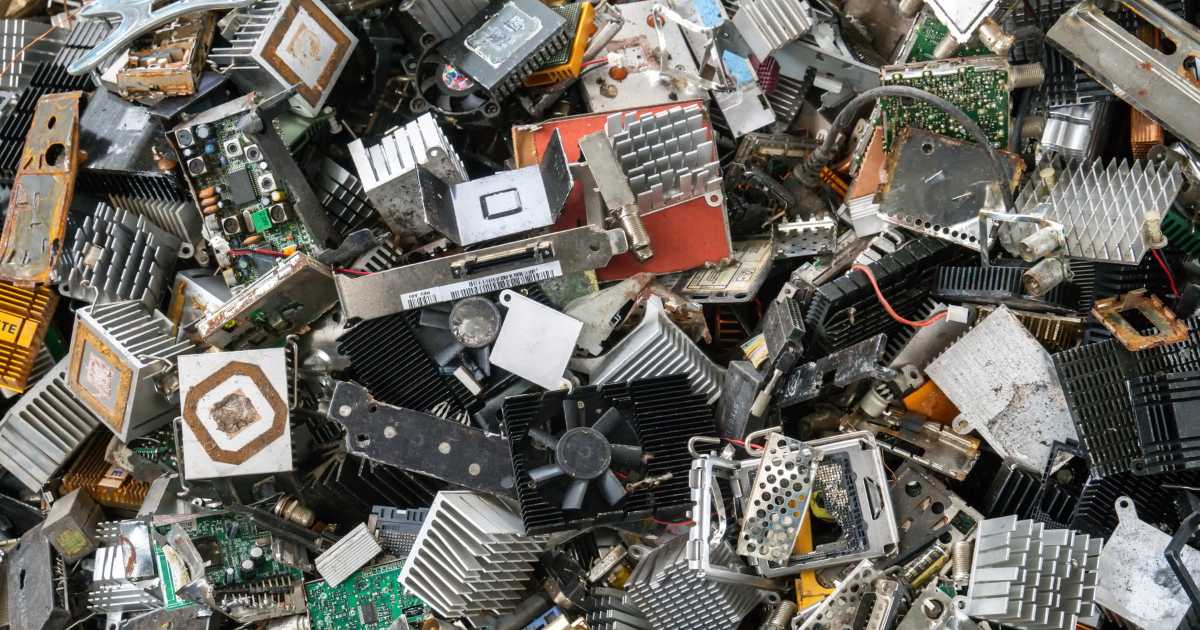Disposing of electronic waste (e-waste) responsibly is more than just a good practice—it’s an essential step when using a dumpster rental. Responsible disposal protects the environment, ensures compliance with legal requirements, and helps conserve valuable resources found in electronics.
Whether you’re tackling a home decluttering project or managing a large-scale cleanout, these detailed steps will guide you on how to handle e-waste with care.
Identify What Counts as E-Waste
Understanding what qualifies as e-waste is the first step. E-waste includes any discarded electronic items, especially those powered by batteries or electricity. Examples include:
Computers and Laptops: CPUs, monitors, keyboards, and accessories.
Mobile Devices: Phones, tablets, and chargers.
Entertainment Electronics: TVs, gaming consoles, DVD players, and sound systems.
Office Equipment: Printers, scanners, and fax machines.
Household Gadgets: Microwaves, coffee makers, and toasters (if they have electronic components). Be thorough when identifying e-waste, as improperly discarded items can harm the environment due to toxic substances like lead, mercury, and cadmium.
Separate E-Waste from Regular Trash
Effective sorting is essential. Designate a dedicated space in your workspace or project site solely for collecting e-waste. This helps minimize contamination and promotes proper disposal practices. Clearly labeled bins or containers can help keep e-waste organized and prevent it from being mixed with regular waste.

Explore Reuse and Recycling Options
Before discarding, assess whether your electronic items still hold value:
Reuse: Functional electronics can often be donated to schools, charities, or community centers. Many organizations accept gently used electronics to support underprivileged individuals.
Recycling: If you have a broken or outdated item, check for local recycling programs. Many cities organize e-waste recycling events or have designated drop-off centers. Stores like Best Buy and Staples also offer electronics recycling services. Recycling helps recover valuable materials such as gold, silver, and copper, reducing the demand for raw resources and lessening environmental harm.
Secure Your Data Before Disposal
Before getting rid of devices, safeguard your personal information by securely deleting or destroying sensitive data:
Data Wiping: Use software to erase data completely from hard drives or storage devices.
Factory Reset: Reset phones, tablets, and computers to factory settings.
Physical Destruction: For added security, physically destroy storage devices like hard drives or SIM cards to ensure the data is unrecoverable. This step is essential to protect your privacy and prevent identity theft.
Understand Local E-Waste Regulations
Every region has its own laws regarding e-waste disposal, and ignorance isn’t an excuse for non-compliance. Some areas strictly prohibit dumping electronics in landfills due to the hazardous materials they contain. Research local policies to ensure you follow the rules.
- Check municipal or state websites for e-waste guidelines.
- Learn about penalties for improper disposal, which can include hefty fines. By staying informed, you protect both yourself and the environment.
Coordinate with Your Dumpster Rental Provider
Not all dumpster rental companies allow e-waste to be thrown in their containers. Some have policies that restrict or guide the disposal of electronics. Contact your provider and ask:
- Are electronics permitted in the dumpster?
- Do they have partnerships with recycling programs?
- Are there additional fees for including e-waste?
If your provider doesn’t allow e-waste, they may offer recommendations or alternative solutions for proper disposal.

Choose Certified E-Waste Recyclers
When selecting a dumpster rental company, ensure they work with accredited recycling facilities for electronic waste. Certified e-waste recyclers have the tools and expertise to handle electronics safely and responsibly, just like waste management services prioritize safety and environmental protection.This not only helps protect the environment but ensures your e-waste is properly processed and reused where possible.
Separate and Recycle Batteries
Before discarding electronics, always remove the batteries. Batteries are classified as hazardous waste and require specialized recycling processes. Many local recycling centers and retailers offer dedicated battery disposal services. By separating batteries, you prevent harmful chemicals from contaminating the environment.
Use Original Packaging for Large Items
If you’re disposing of large electronics like TVs or computer monitors, try to use their original packaging. These boxes are designed to protect the devices during transportation, reducing the risk of damage and making recycling easier and safer.
Additional Tips for Responsible E-Waste Disposal
Load E-Waste Carefully: Handle electronics gently when placing them in a dumpster or transport bin. Broken devices can release hazardous materials, so take precautions to avoid unnecessary damage.
Keep Records: Maintain documentation, such as receipts or certificates, from recycling facilities. These records are particularly important for businesses or organizations as proof of responsible disposal.
Report Improper Disposal: If you notice e-waste being discarded irresponsibly in public areas or dumpsters, report it to local authorities. Your actions can help promote awareness and encourage better practices within your community.
By following these steps, you’re playing an active role in protecting the environment, reducing hazards, and supporting the sustainable recycling of valuable materials. Together, we can ensure a cleaner, safer future for everyone!

Why Is Responsible E-Waste Disposal Important?
Electronics often contain toxic materials like lead, mercury, and arsenic, which can leach into soil and water when improperly disposed of. At the same time, they hold valuable metals and components that can be recycled to reduce environmental impact.
By handling e-waste responsibly, you’re not just complying with the law—you’re contributing to a more sustainable future. Ready to make a positive impact? Follow these steps to ensure your e-waste is managed safely and responsibly!
Frequently Asked Questions
What qualifies as electronic waste (e-waste)?
Waste includes any electronic devices or equipment that are no longer in use or outdated. Common examples include old computers, monitors, TVs, cell phones, printers, and electronic accessories like chargers and cables.
Why is it important to manage e-waste disposal responsibly?
E waste contains hazardous materials such as lead, mercury, and cadmium that can harm the environment if not handled correctly. Moreover, electronics often have valuable components like metals that can be recycled, reducing the demand for raw materials and conserving resources.
Can I throw e-waste in the dumpster with regular trash?
No, mixing e-waste with regular trash is not recommended. Improper disposal can lead to environmental contamination and wasted recyclable materials. E-waste should always be separated and handled through proper recycling channels.
How should I prepare electronic devices for disposal?
Before disposing of electronics, securely erase all personal or sensitive data. This can be done by:
- Wiping hard drives.
- Resetting devices to factory settings.
- Physically destroying storage media for added security.
Where can I locate e-waste recycling programs or drop-off centers?
Most communities offer dedicated e-waste recycling centers or periodic electronic recycling events. Check with your local government, nearby recycling centers, or electronic retailers to locate convenient options for responsible disposal.
What if my dumpster rental provider doesn’t accept e-waste?
If your dumpster rental provider prohibits e-waste, explore alternative solutions such as:
- Local e-waste recycling centers.
- Community e-waste collection drives.
- Retailer programs that accept electronics for recycling.
Are there regulations governing e-waste disposal?
Yes, e-waste disposal laws vary by region. Research local, state, and federal regulations to ensure you comply with proper disposal practices. Non-compliance can result in fines and environmental harm.
Can I remove batteries from devices and throw them in the dumpster separately?
No, batteries are considered hazardous waste and require special handling. Always remove batteries from electronic devices and recycle them through designated battery recycling programs or drop-off locations at electronic retailers.
Should I keep the original packaging for large electronic items?
Whenever possible, retain the original packaging for larger items like TVs or computer monitors. These boxes are designed to provide optimal protection during transport and recycling, reducing the risk of damage.
Conclusion
Managing e-waste disposal responsibly is essential for protecting the environment and staying compliant with regulations. By taking steps like evaluating your project needs, collaborating with your dumpster rental provider, and exploring recycling options, you can efficiently handle waste disposal while being eco-conscious.
Proper planning not only saves you time and money but also helps keep our planet clean. So, whether it’s your project or Mother Earth, responsible disposal practices make everyone a winner! Consider these tips for successful recycling with dumpster rentals.
